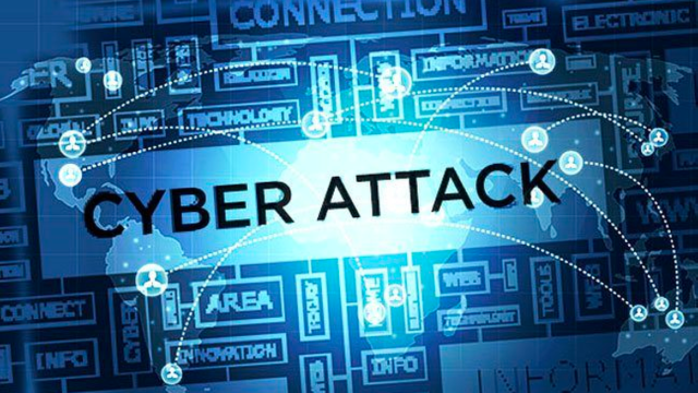
Information technology security is an integral part of modern life, especially in the world of business. It’s hard to imagine a successful enterprise without extensive IT security measures in place. However, many threats that workers and businesses constantly face can compromise their work environment and cause serious problems.
Information security is the process of protecting information from unauthorized access, use, disclosure, disruption, modification, or destruction. This means that all data must be secured through encryption and other methods to prevent unauthorized access by hackers and cybercriminals.
1. Security Breaches Are Expensive

Security breaches can have dire consequences for a business, from the increased cost of data theft to the broken trust that could result from a hack to the loss of reputation. In addition, a security breach can cause irreparable damage with lost business and brand value if it is severe enough.
A security breach can have many different effects, all of which can be expensive. Businesses suffer financial losses due to system outages, clientele loss due to churn, and customer acquisition expenses. Businesses must also pay an IT specialist to assess the incident and determine what went wrong in order to prevent another breach. More so, there will probably be a need for new security measures, which are also expensive.
The data breach cost is difficult to estimate, but as more businesses are attacked and exposed, the potential financial costs are becoming more evident. The average cost of a data breach worldwide hit an all-time high of $4.35 million in 2024, according to IBM’s Cost of a Data Breach report. This analysis states that the average cost of a ransomware breach is higher than the average cost of a data breach, coming in at US$4.54 million versus $4.35 million.
A ransomware attack hit Colonial Pipeline Company in 2024. The fact that it just required one hacked password to temporarily shut down the largest petroleum pipeline in the United States is what surprises people the most. A cybersecurity attack involving ransomware forced the corporation to shut down its pipeline, which supplies nearly half of the gasoline used on the East Coast, on May 7th, 2024, according to a report from the company.
The possible consequences of a protracted disruption were severe enough to warrant paying the hackers, an eastern European group named DarkSide, $4.4 million in bitcoin.
2. A Client Can Sue Your Business For Not Having The Proper Security Set Up
A company is responsible for the safety of a customer’s information and can be held liable when systems are breached. The E-Commerce industry is at an increased risk for data breaches, as it involves sensitive customer personal information like credit card numbers, online orders, account numbers, or emails.
In most nations, companies dealing with sensitive data must have a security policy and strategy in place. For example, in the United States, The Federal Information Security Management Act mandates that businesses have procedures in place. Moreover, if privacy policies aren’t followed, California customers can sue businesses under the California Consumer Privacy Act.
The world’s strictest security rule, the General Data Protection Regulation, was passed by the EU in 2018. The regulated entities will have to abide by new rules since data privacy is still a major concern.
Furthermore, when a company is sued by its client, there are increased risks of a data breach being disclosed. If the data breach is disclosed in court, it could result in bad press for the company and may have a negative effect on other clients interested in doing business with them. As this disclosure occurs, the business is required to notify its clients if they were affected by the breach. This could lower others’ trust in your company and drive them away from doing business with you.
Information security is meant to protect your customers. Hackers are constantly trying to attack your customers’ data so that they can steal valuable information and extort money from the victims. If you protect your customers and their data, they are more likely to stick with you instead of switching to a different company.
3. Information Security Protects Your Assets

Information technology security keeps your company’s information and intellectual property safe. It prevents data loss so that you don’t have to spend a lot of money replacing the lost data. It also prevents data theft and extortion attempts. Protecting your assets will save you more money than any investment in security that you can make.
It keeps your company’s information and intellectual property safe. It prevents data loss so that you don’t have to spend a lot of money replacing the lost data. It also prevents data theft and extortion attempts. Protecting your assets will save you more money than any investment in security that you can make.
Increasing reliance on information technology entails more significant risks; instances like data breaches, fraud, and the propagation of dangerous code are clearly on the rise. The perpetrators of cybersecurity include individuals and well-organized crime, terrorists, and the government. To protect your business assets, you need to have information security in place.
4. Security Is Also Essential When Your Business Deals With Other Organizations
You can only do business with someone else if you trust them and if they trust you. If you can only communicate with people through their organization’s security channels, it is much harder for you to trust them. This may make it hard for them to trust and do business with you.
In this case, security is important when information moves from one organization to another. If your computer does not have a secure connection or your business email messages are intercepted or hacked, the information in transit can be stolen or altered. There are many ways in which this can happen. It can happen by using social engineering to get someone at the other end of the connection to give up information or even to give up their password. It can also be done by an attacker just trying to gain access to steal financial data. Regardless of the motivation, if your data moves across an unsecured connection, then it will be vulnerable.
You’re A Cyberattack Target, No Matter How Big or Small Your Business Is

No matter the size of your company, there’s always a chance that a cyber-attack could compromise your data, disrupt your business, or lead to financial losses. The fact is cybersecurity is no longer limited to just tech giants – even small and medium-sized businesses need to protect their assets from hackers. So if you’re still not employing cybersecurity solutions for your business, it’s time to start climbing out of the woodwork and take a stand against cybercrime before it takes one more thing from you.
Some of the most common cyberattacks that your business should be prepared for include:
- Password Attack
- Phishing Attack
- Ransomware Attack
- DDoS (Distributed Denial of Service) Attack
- Remote Access Hack
- Social Engineering Attack
- Service Denial of Operations
- Bad Code Attacks
- Hardware Compromise Attacks
Information technology security is more than just a buzzword or an impossible dream for many companies. Security is a necessary part of every organization’s operations and should be implemented from the very beginning when designing an IT strategy or employing a managed IT service company like MyTek.
As technology continues to evolve and become more complex, information security must evolve with it or risk being left behind due to rapidly evolving threats. As companies seek new ways to innovate and make their products available faster through information technology, they are being targeted by hackers looking for vulnerabilities to infiltrate sensitive intellectual property or proprietary customer data.





